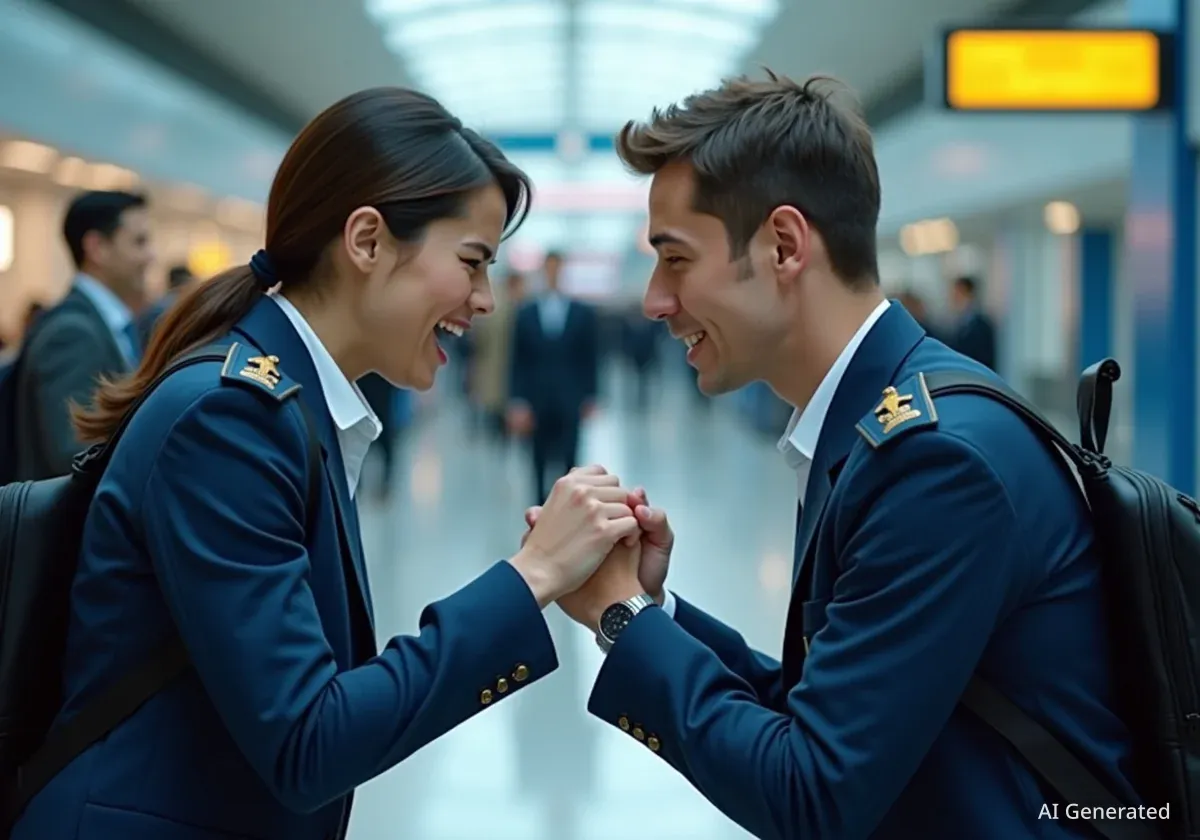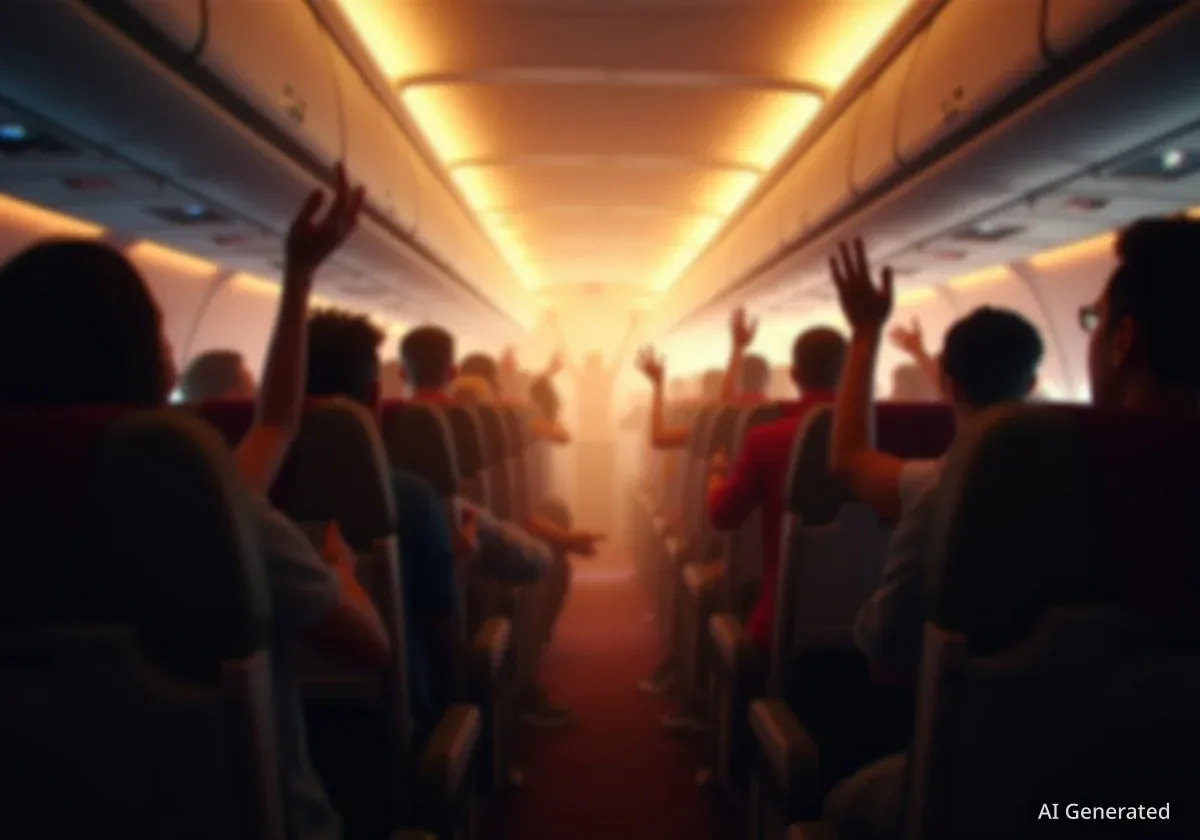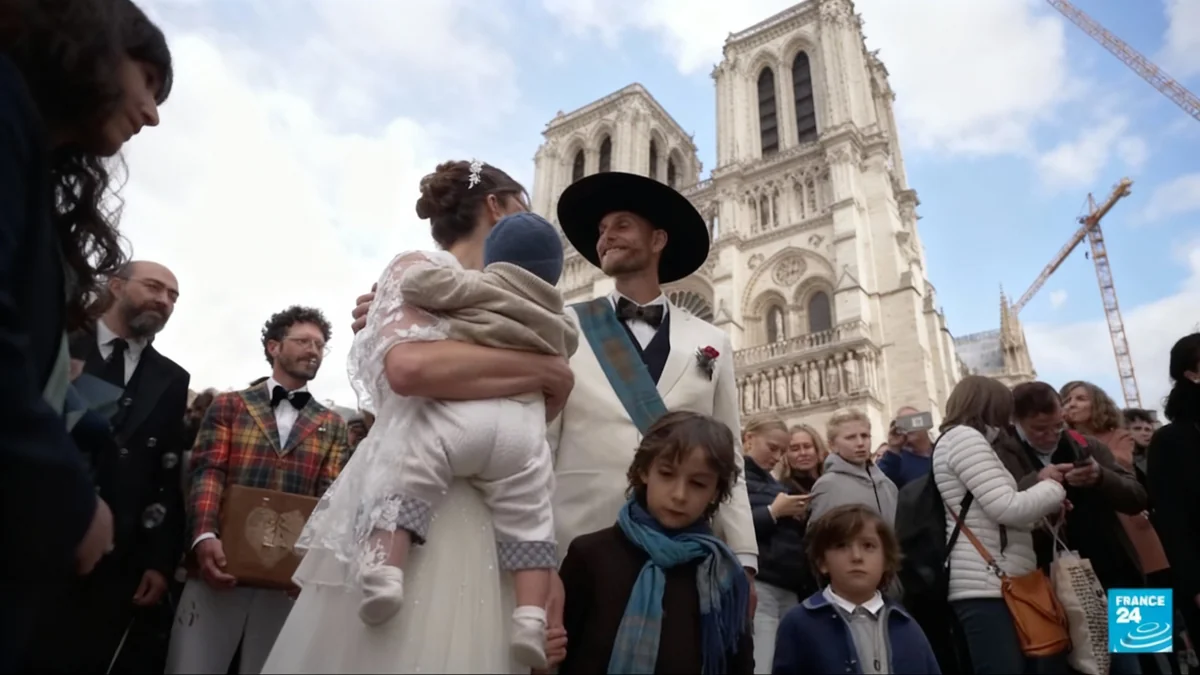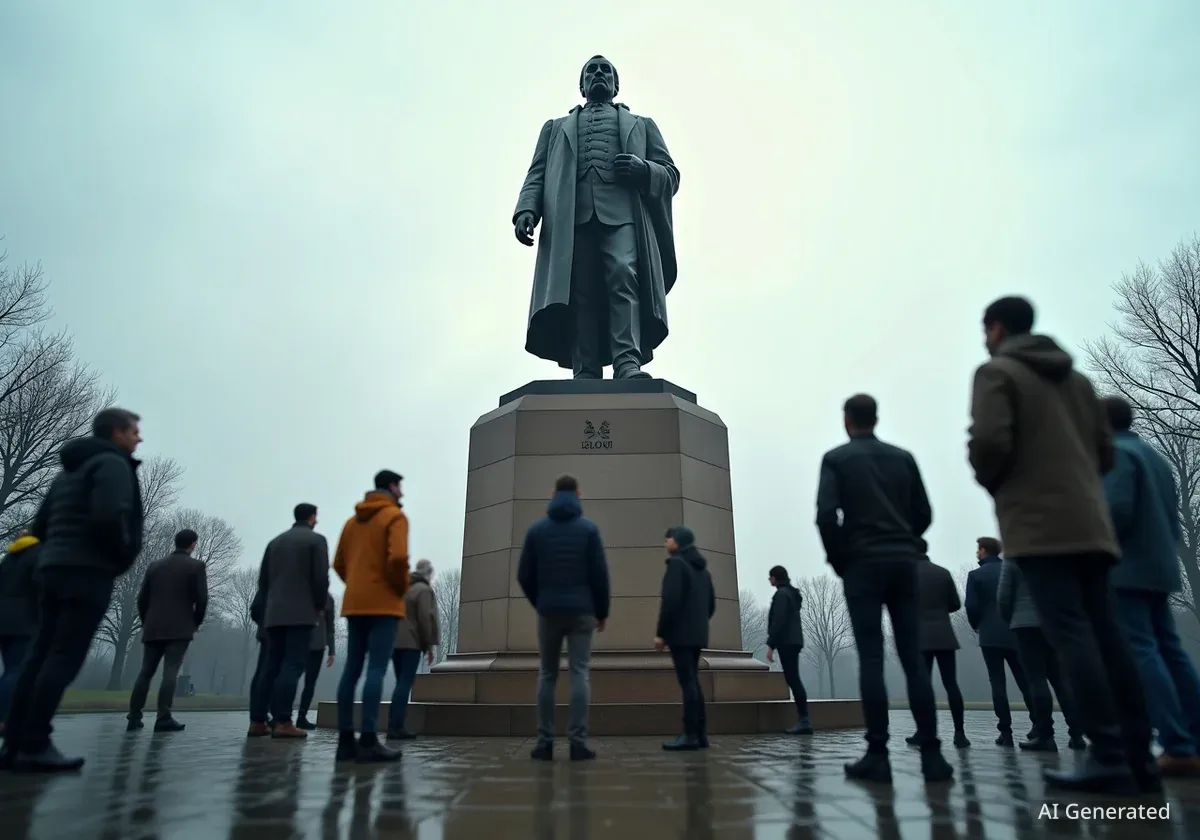A heated verbal confrontation unfolded at Atlanta Hartsfield-Jackson International Airport, involving a Delta Air Lines flight attendant and a Southwest Airlines gate agent. The incident, captured on video and widely shared online, highlights a rare public dispute between uniformed employees from rival carriers, raising questions about professional conduct in customer service environments.
Key Takeaways
- A Delta flight attendant verbally confronted a Southwest gate agent.
- The incident occurred at Atlanta Hartsfield-Jackson International Airport.
- The flight attendant criticized the agent's customer service and called her "ghetto."
- The exchange was recorded and went viral on social media.
- Many viewers debated the professionalism of both individuals.
Verbal Altercation Unfolds in Terminal
The incident began after a Delta Air Lines flight attendant, still in uniform, landed at Atlanta Airport. He approached a Southwest Airlines gate agent, also in uniform, and started to criticize her customer service directly. The flight attendant claimed the agent's behavior was unprofessional and reflected poorly on Southwest Airlines.
The video shows the Delta employee walking alongside the Southwest agent through a busy terminal. He expressed strong dissatisfaction with the service he reportedly received. The confrontation quickly escalated into a public argument, drawing the attention of nearby travelers.
Incident Details
- Location: Atlanta Hartsfield-Jackson International Airport
- Personnel Involved: Delta Air Lines flight attendant, Southwest Airlines gate agent
- Cause: Allegations of poor customer service
- Outcome: Viral video, public discussion
Accusations of Unprofessional Conduct
During the exchange, the Delta flight attendant was heard making several disparaging remarks. He referred to the Southwest agent's customer service as "ridiculous" and labeled her behavior as "ghetto." He also claimed that the airport itself had poor customer service standards, stating, "This is the worst airport, and y’all make Southwest look horrible."
The flight attendant continued his rant, suggesting that Atlanta needed to "clean itself up." He added that he did not "have to take Southwest," implying a preference for his own airline, Delta.
"That customer service is ridiculous. This is the worst airport, and y’all make Southwest look horrible."
The Southwest gate agent attempted to de-escalate the situation by asking the flight attendant to lower his voice. This request, however, appeared to further agitate the Delta employee, who then demanded, "Get your hands out of my face." He continued to verbally attack her, asking for her name tag and repeating the term "ghetto."
Public Reaction and Online Debate
The video of the incident quickly gained traction after being posted online. It sparked a significant debate among viewers regarding who was at fault and the appropriate conduct for airline employees. Many social media users expressed strong opinions, with some siding with the Delta flight attendant and others condemning his actions.
Some online comments supported the Delta employee's frustrations, citing their own negative experiences with customer service at Atlanta Airport. One user stated, "ATL does suck with their customer service, he ain’t lying." Another commented on the general state of customer service, saying, "Not just Atlanta, the entire state of Georgia has horrible customer service."
Customer Service Challenges
Airline customer service can be a high-pressure environment. Employees often deal with stressed travelers, flight delays, and unexpected issues. Maintaining professionalism in challenging situations is a core expectation for all airline staff, regardless of their role or the airline they represent.
Professionalism Under Scrutiny
Conversely, a significant portion of the online community criticized the Delta flight attendant for his behavior, especially while in uniform. Many pointed out that his actions were unprofessional and reflected poorly on his airline.
One commenter highlighted the importance of professional conduct, stating, "There is a time, place, and way to handle issues respectfully and professionally. He did neither. He allowed his ego to outshine his uniform. He should be required to do a public apology if he wants to keep his job. He misrepresented the Delta brand."
The incident raises important questions about how airline staff manage personal frustrations while representing their companies. Employees are often expected to embody their brand's values, even during off-duty hours or when interacting with competitors.
Impact on Airline Reputation
Such public confrontations can have implications for the reputations of the airlines involved. While the specific details leading up to the argument remain unclear, the viral nature of the video ensures widespread visibility. Both Delta and Southwest Airlines uphold standards of conduct for their employees, and incidents like this can trigger internal reviews.
The aviation industry relies heavily on passenger trust and positive experiences. Any public display of unprofessionalism can erode that trust, making it crucial for airlines to address such situations promptly and effectively. The incident serves as a reminder of the constant scrutiny faced by customer-facing employees in the travel sector.
Airline Employee Conduct
- Airlines typically have strict codes of conduct for employees, both on and off duty.
- Professionalism is paramount in customer-facing roles.
- Public incidents can significantly impact brand image and public perception.
Moving Forward
As the video continues to circulate, the conversation around customer service etiquette and employee professionalism in the airline industry will likely persist. Airlines often invest in training programs to equip their staff with conflict resolution skills and emphasize the importance of maintaining composure under pressure.
This incident underscores the challenges faced by frontline workers in the travel sector and the high expectations placed upon them. It also highlights the power of social media in quickly disseminating information and shaping public opinion on such events.





